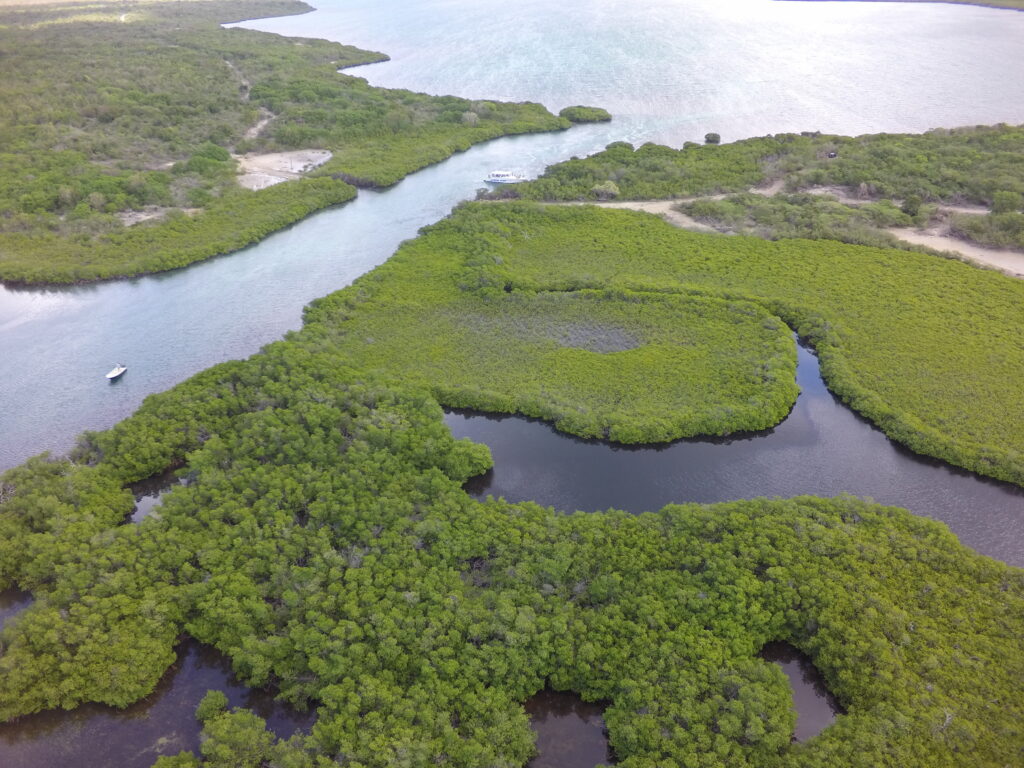The Caribbean is now less than six months away from the start of the hurricane season, and soon we will be watching weather developments with bated breath. Although last year was relatively uneventful, the recent years have seen more destructive hurricanes, not to mention the development of storms even before the official beginning of the season.
Scientists have asserted that this is because of climate change caused by human behaviour. Humans have been making drastic changes to their environment in the pursuit of development and other advances, oblivious to the fact that our natural environment has been serving as a buffer against the worst that the weather throws at us.
Our coastal and marine ecosystems provide services that help to protect landward assets from the full strength of weather phenomenon that are common to the Caribbean. Hurricanes generate storm surges that can cause massive damage once they collide with unprotected coastline.

However, with healthy reefs and mangrove forests, much of the energy is absorbed as the waves pass over and through these natural barriers. Fishermen have been known to anchor their boats among mangroves for shelter during storms. Coastal settlements also gain some level of protection from the full effects of storm surges and destructive wave action.
Trees and other vegetation also provide us with much needed protection. They serve as natural wind breakers, helping to slow down and redirect the force of strong winds, giving manmade structures a respite from the full force of winds.
They also control the force and rate of water runoff, allowing it to seep into the ground (recharging groundwater supplies), and capturing much of the soil that would be washed into the sea. This is an important function, since it reduces the chances of landslides and flash floods, helps the soil to retain its nutrients, and to improve its moisture content; soil that is exposed to long hours of sunlight quickly loses its water by evaporation.
On a broader scale, any life that uses photosynthesis helps to remove carbon dioxide from the air. Carbon dioxide is a ‘greenhouse gas’, known to trap heat from radiating out into space. As such, it contributes to the trend that has been observed worldwide where the frequency of high temperatures has been increasing. Take the Caribbean as an example.
During the ‘winter’ season, we can expect temperatures as low as in the 70’s Fahrenheit. Imagine in the future, where the lowest temperatures during the same time of year, only go as low as the 80’s. Now, imagine what the highest temperatures would be! One may recall that hurricanes thrive in warmer conditions; this is why greenhouse gases have been identified as major drivers of climate change, which has been blamed for the increasing trend of more devastating storms and crippling droughts worldwide.
It’s also important to keep in mind that there won’t always be a direct, obvious connection between our behaviour and the adverse effects that we observe. For example, we can contribute to coral reef death without even physically interacting with them ourselves. Our activities further inland and along the coast can lead to conditions that aren’t helpful to them.
Excessive removal of vegetation (whether terrestrial trees or mangroves) increases the possibility that the shallow waters where coral reefs can normally be found, get clouded by sediment from inland runoff. Coral polyps are fed through the process of photosynthesis, which means that the water they live in needs to be clear enough to allow enough sunlight to penetrate. Without this, they will die. This is just one example of the many ways in which we can affect our planet’s delicate ecological balance.
Economic development is important and very much desired, as it helps to improve everyone’s standard of living. However, we do need the services and functions that biodiversity and the environment provide, to live comfortably on Earth, just as much as we need our advancements to improve our standard of living.
Our development practices need to be governed by an ecology-based management approach that takes into account the interactions between everything in our ecosystems and ensures that we do not harm the Earth’s biodiversity beyond repair. Let’s protect our ecosystems, so that they can also protect us.

